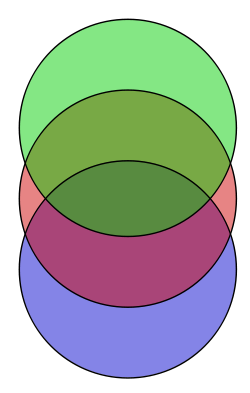- Deductive fallacy
-
A deductive fallacy is defined as a deductive argument that is invalid. The argument itself could have true premises, but still have a false conclusion.[1] Thus, a deductive fallacy is a fallacy where deduction goes wrong, and is no longer a logical process.
Contents
Logical fallacy
The standard Aristotelian logical fallacies are:
- Fallacy of four terms (Quaternio terminorum);
- Fallacy of the undistributed middle;
- Fallacy of illicit process of the major or the illicit minor term; and
- Affirmative conclusion from a negative premise.
Other logical fallacies include:
In philosophy, the term logical fallacy properly refers to a formal fallacy—a flaw in the structure of a deductive argument, which renders the argument invalid.
However, it is often used more generally in informal discourse to mean an argument that is problematic for any reason, and thus encompasses informal fallacies as well as formal fallacies—valid but unsound claims or poor non-deductive argumentation.
The presence of a formal fallacy in a deductive argument does not imply anything about the argument's premises or its conclusion (see fallacy fallacy). Both may actually be true, or even more probable as a result of the argument (e.g. appeal to authority), but the deductive argument is still invalid because the conclusion does not follow from the premises in the manner described. By extension, an argument can contain a formal fallacy even if the argument is not a deductive one; for instance an inductive argument that incorrectly applies principles of probability or causality can be said to commit a formal fallacy.
Example
 A Venn diagram illustrating a fallacy:
A Venn diagram illustrating a fallacy:
Statement 1: Most of the green is touching the red.
Statement 2: Most of the red is touching the blue.
Logical fallacy: Since most of the green is touching red, and most of the red is touching blue, most of the green must be touching blue. This, however, is a false statement.In the strictest sense, a logical fallacy is the incorrect application of a valid logical principle or an application of a nonexistent principle:
- Most Rimnars are Jornars.
- Most Jornars are Dimnars.
- Therefore, most Rimnars are Dimnars.
This is fallacious. And so is this:
- People in Kentucky support a border fence
- People in New York do not support a border fence.
- Therefore, people in New York do not support people in Kentucky
Indeed, there is no logical principle that states:
- For some x, P(x).
- For some x, Q(x).
- Therefore for some x, P(x) and Q(x).
An easy way to show the above inference as invalid is by using Venn diagrams. In logical parlance, the inference is invalid, since under at least one interpretation of the predicates it is not validity preserving.
People often have difficulty applying the rules of logic. For example, a person may say the following syllogism is valid, when in fact it is not:
- All birds have beaks.
- Octopuses have beaks.
- Therefore an octopus is a bird.
"That creature" may well be a bird, but the conclusion does not follow from the premises. Certain other animals may also have beaks. Errors of this type occur because people reverse a premise.[2] In this case, "All birds have beaks" is converted to "All beaked animals are birds." The reversed premise is plausible because few people are aware of any instances of beaked creature besides birds—but this premise is not the one that was given. In this way, the deductive fallacy is formed by points that may individually appear logical, but when placed together are shown to be incorrect.
See also
References
- ^ Labossiere, Michael (1995). "Description of Fallacies". The Nizkor Project. http://www.nizkor.org/features/fallacies/. Retrieved 2008-09-09.
- ^ Wade, Carole; Carol Tavris (1990). "Eight". In Donna DeBenedictis. Psychology. Laura Pearson (2 ed.). New York: Harper and Row. pp. 287–288. ISBN 0-06-046869-6.
Formal fallacies Masked man fallacy · Circular reasoning In propositional logic In quantificational logic Syllogistic fallacy Other types of formal fallacy · List of fallacies Informal fallacies Absence paradox · Begging the question · Blind men and an elephant · Cherry picking · Complex question · False analogy · Fallacy of distribution (Composition · Division) · Furtive fallacy · Hasty generalization · I'm entitled to my opinion · Loaded question · McNamara fallacy · Name calling · Nirvana fallacy · Rationalization (making excuses) · Red herring fallacy · Special pleading · Slothful induction Correlative-based fallacies Deductive fallacies Inductive fallacies Vagueness and ambiguity Equivocation Questionable cause Animistic · Appeal to consequences · Argumentum ad baculum · Correlation does not imply causation (Cum hoc) · Gambler's fallacy and its inverse · Post hoc · Prescience · Regression · Single cause · Slippery slope · Texas sharpshooter · The Great Magnet · Unknown Root · Wrong directionList of fallacies · Other types of fallacy Categories:- Deduction
- Logical fallacies
Wikimedia Foundation. 2010.
